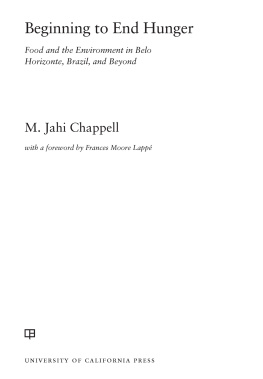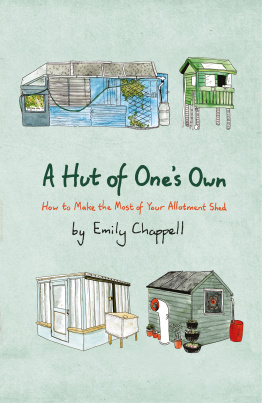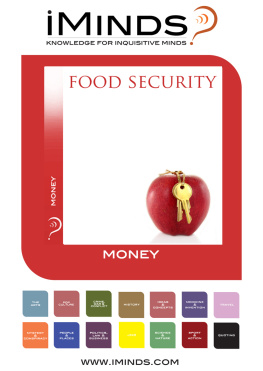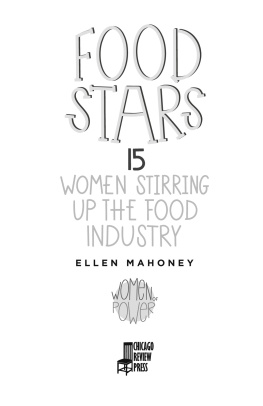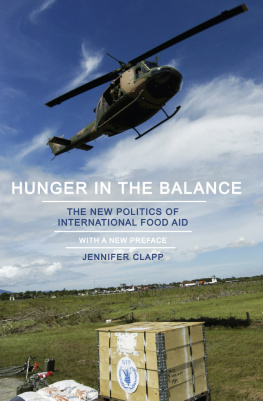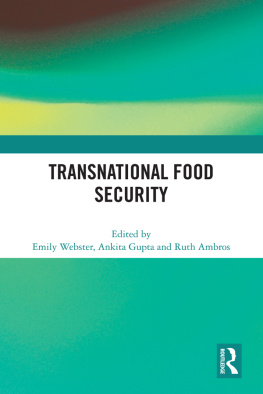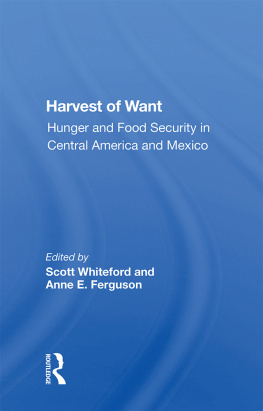Beginning to End Hunger
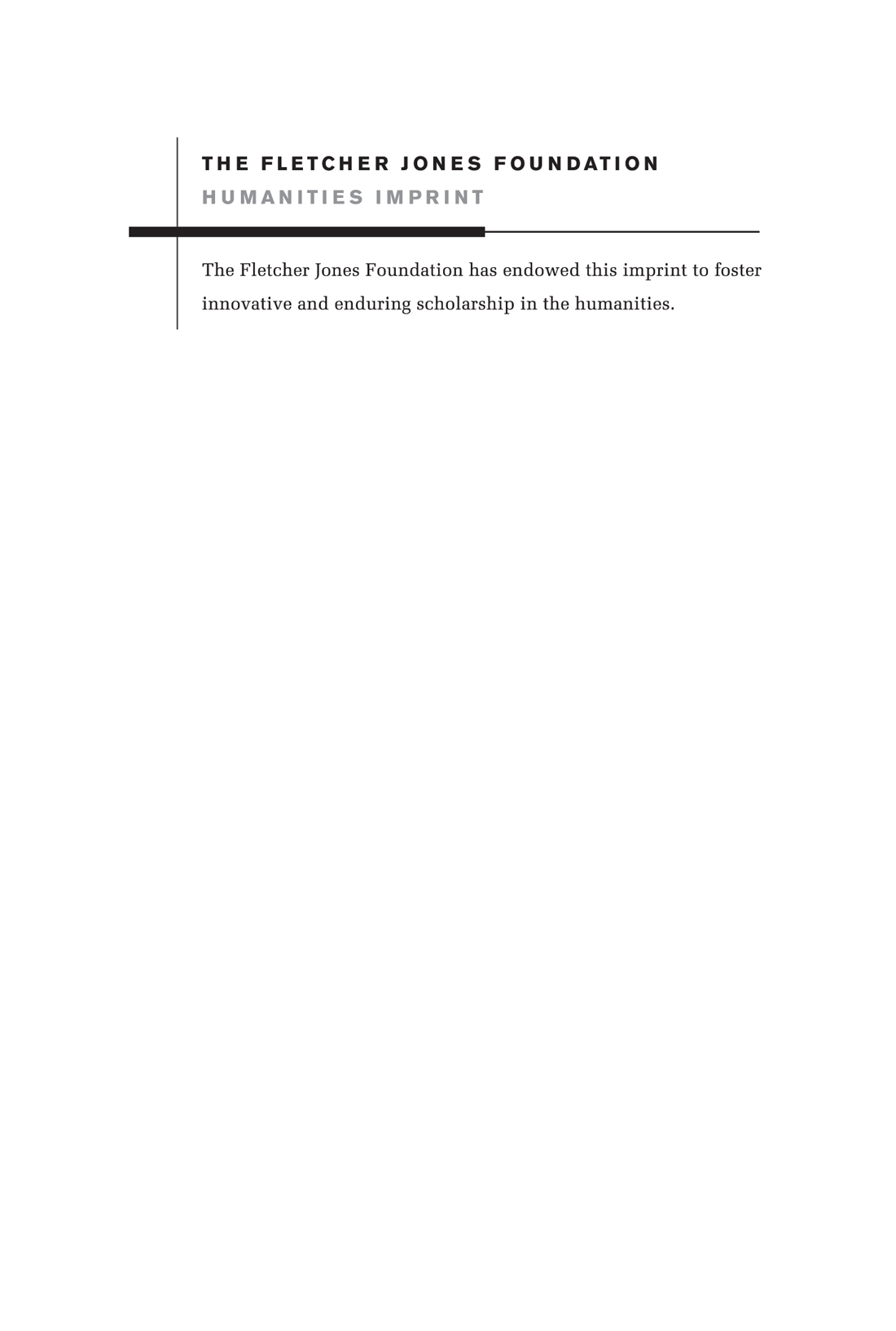
The publisher and the University of California Press Foundation gratefully acknowledge the generous support of the Fletcher Jones Foundation Imprint in Humanities.
Beginning to End Hunger
Food and the Environment in Belo Horizonte, Brazil, and Beyond
M. Jahi Chappell
with a foreword by Frances Moore Lapp

UNIVERSITY OF CALIFORNIA PRESS
University of California Press, one of the most distinguished university presses in the United States, enriches lives around the world by advancing scholarship in the humanities, social sciences, and natural sciences. Its activities are supported by the UC Press Foundation and by philanthropic contributions from individuals and institutions. For more information, visit www.ucpress.edu.
University of California Press
Oakland, California
2018 by The Regents of the University of California
Library of Congress Cataloging-in-Publication Data
Names: Chappell, M. Jahi, author.
Title: Beginning to end hunger : food and the environment in Belo Horizonte, Brazil, and beyond / M. Jahi Chappell ; with a foreword by Frances Moore Lapp.
Description: Oakland, California : University of California Press, [2018] | Includes bibliographical references and index. |
Identifiers: LCCN 2017036477 (print) | LCCN 2017046063 (ebook) | ISBN 9780520966338 (ebook) | ISBN 9780520293083 (cloth : alk. paper) | ISBN 9780520293090 (pbk. : alk. paper)
Subjects: LCSH: Food securityBrazilBelo Horizonte. | Nutrition policyBrazilBelo Horizonte. | Food supplyGovernment policyBrazilBelo Horizonte. | Hunger.
Classification: LCC HD9014.B8 (ebook) | LCC HD9014. B8 C47 2018 (print) | DDC 363.80981/51dc23
LC record available at https://lccn.loc.gov/2017036477
Manufactured in the United States of America
26 25 24 23 22 21 20 19 18
10 9 8 7 6 5 4 3 2 1
Dedicated to the memories of Benjamin Franklin Brown Sr., Clara Lucille Brown, Dorothy Chappell, William James Chappell, and Laticia Raggs, who helped make me the person I am; and Charity Hicks, Cynthia Hayes, Kathy Ozer, Moiss Machado, Rodney Bender, and Dick Levins, who helped show me the kind of person I want to be.
Contents
Illustrations
FIGURES
TABLES
Foreword
With the book you have before you, Jahi Chappell has achieved a remarkable feat. In Beginning to End Hunger he enables readers to examine very old questions with brand-new eyes.
This book moves me in part for a deeply personal reason. Almost fifty years ago, what set me off on my path was the shock of discovering that much of the conventional way of perceiving the roots of hunger blocked us from solutions. Squirreled away in the University of California agricultural library, I wanted to know whether scarcity of food was really the culprit. Soon I realized we couldnt blame stingy nature, for human beings were actively creating the experience of scarcity amid plenty.
From there, my question Why hunger? grew, ultimately to this much bigger one: Why are we creating together a world that none of us as individuals would ever choose? Certainly no one Ive ever encountered gets up in the morning determined to make anyone go hungry. Chappell helps us grasp the answer. He conveys the power of the human mind to frame and reframe causes of hunger and therefore possibilities for actually beginning to end it.
I also love this book because I share Chappells belief that we humans learn by observing each other. It is by example and through stories that we best absorb new, and missed, opportunities. A gift he gives us is his intimate knowledge of the story of Brazils sixth largest city, Belo Horizonte (which means Beautiful Horizon), which has earned worldwide recognition for its quarter-century, many-faceted journey toward food with dignity for all.
What comes through this remarkable story is that answers require our reconsidering the very way we do governance, production, and consumption, as the author writes. We learn that this rocky but oh-so-rewarding road requires remaking the rules together. Then we can celebrate, for example, what must be an unprecedented achievement in the speed of social progressunder-five child mortality cut by 73% in just a decadewhile at the same time staying fully cognizant of the vast undone work still under way.
The story of Belo is offered not as a model to lock us into a new frame, but as lesson-filled experiences to crack open our sense of the possible. In this, Chappell convinces me that one of the greatest obstacles to solutions is our reluctance to take the first step when we cant envision the entire road ahead. He persuades me that we really are capable of letting go of that unfortunate tendency.
Finally, this remarkable book reminds me that hope itself has power. Neuroscientists tell us that hope actually helps to reorganize our neural pathways, our consciousness, toward solutions. And the story of a major city in one of the worlds most unequal societies achieving, however partial, what many believed to be impossible is precisely a story of what can happen in communities energized by hope.
That is why I argue that honest hope is not for the faint at heart! For we all need courage to pick up this books lessons.
In that vein, let me close with one of my favorite lines in this wonderful book: Beware... any approach to thinking about the problems of the world that requires nothing of you, and puts blame or responsibility on others, as a matter of first principle. Beginning to End Hunger is the opposite: It requires a lot from usa willingness to try on new glasses and to embrace the joy of gaining clarity on ones next step, letting go of any certainties beyond.
Most works about world hunger carry directives such as You should be more charitable or Shame on themthe evil ones keeping others hungry. This book welcomes us to become part of the solution if we are willing to rethink common assumptions and to take the first step. Writing with humanity, humility, and irony, Dr. Chappell welcomes us onto this emancipatory road.
Frances Moore Lapp
March 2017
Preface
You know, we were really happy when they threatened to sue us, said Rubens, an administrator in the Belo Horizonte city government. Welcoming litigation is not something you would expect from a municipal official. Or from anyone else, for that matter.
It was 2003, and I was on my first visit to Belo Horizonte, Brazil, with a group of Canadian nutrition students, coordinated by Cecilia Rocha, a Brazilian-Canadian nutrition economist. Cecilia is the foremost scholar of the extraordinary case of Belo Horizonte, a city whose food security policies are a rare example of success (Rocha 2001). While it might notyetliterally be the city that ended hunger (Lapp 2010), it has made such significant strides in food security that such a tagline cannot be dismissed as hype alone. In fact, Belo Horizontes innovations in food security helped pilot some of Brazils national Zero Hunger food security policies, which have contributed to unprecedented decreases in inequality and poverty in Brazil since 2004. And Belo Horizonte itself has seen dramatic drops in malnutrition, and increases in fruit and vegetable consumption, since its food security programs started in 1993.
The they Rubens celebrated for their possible lawsuit against the cityhis employerwas an alliance of a local nonprofit and several community daycares. We were at the time being driven to one of the daycares in Belo Horizonte that received fresh food and meals through the citys food security programs. These programs were managed under a unified Municipal Secretariat (or Department) of Food and Nutritional Security, which had partnered with some of the community-run daycares in the city almost from the secretariats start. But a number of daycares in lower-income areas felt that they had every right to access the daycare meal programs as well. So they coordinated with local NGOs and movements for daycare access to pressure the city to extend its partnerships beyond the limited initial number of daycares. For Rubens, the push indicated that the citys message and the goal of the secretariatto guarantee the right to food for all of its citizenshad been truly internalized by Belo Horizontes citizens. That some citizens had organized to force the city to fulfill its commitments was a good sign, and helped solidify the secretariats plans to extend its programs.
Next page
